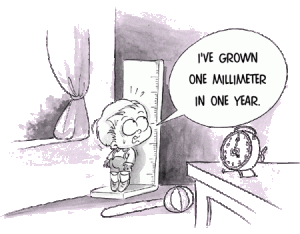 understand the pattern of perfect tense identify perfect tense in a certain text — use perfect tense in making sentences and telling an event or action.
understand the pattern of perfect tense identify perfect tense in a certain text — use perfect tense in making sentences and telling an event or action.The present perfect tense is a perfect tense used to express action that has been completed with respect to the present. (The word perfect in its name refers to the idea of completion—of being now finished—rather than to perfection in the sense of “no flaws”.)
“I have finished” is an example of the present perfect. The present perfect is a compound tense in English (and in many other languages), meaning that it is formed by combining an auxiliary verb with the main verb. For example, in modern English, it is formed by combining a present-tense form of the auxiliary verb “to have” with the past participle of the main verb. In the above example, “have” is the auxiliary verb, whereas the past participle “finished” is the main verb. The two verbs are sometimes labeled “V1″ and “V2″ in grammar instruction.

— Present Perfect Tense is used for describing a past action’s effect on the present: He has arrived. Now he is here. This holds true for events that have just been secluded as well as for events that have not yet occurred.
Present perfect is formed by combining have/has with the main verb’s past participle form:
— I have arrived.
A negation is produced by inserting not after have/has:
— I have not arrived.
Questions in present perfect are formulated by starting a sentence with have/has:
— Has she arrived?
Adverbs used:
Past Perfect Tense is a kind of tense that is used to describe an action or an event that started in a certain time in the past and completed or finished till certain time in the past too; or past perfect tense is used to express an action or an event that had happened before the other event or action happened
The pattern :
– (+) Subject + had+verb III+cmplement
– (-) Subject + had not+ver III+complement
– (?) Had + subject +verb III+complement
– (+) We had eaten before they came
– (-) They had not eaten before we came
– (?) Had they eaten before we came?
Have/has + past participle
1) Regular verb. Add +ed or +d on past& past participle
Ex : I have cleaned the blackboard\
2) Irregular verb
Ex : - Buy → Bought
- do→ done
- get→ got
- etc.
(+) The students have entered tha classs
(-) The student have not entered the class
(?) Have the students entered the class ?
(+) S + have / has + VIII
(-) S +have / has +not + VIII
(?) Have / Has + S + VIII ?
Tidak ada komentar:
Posting Komentar